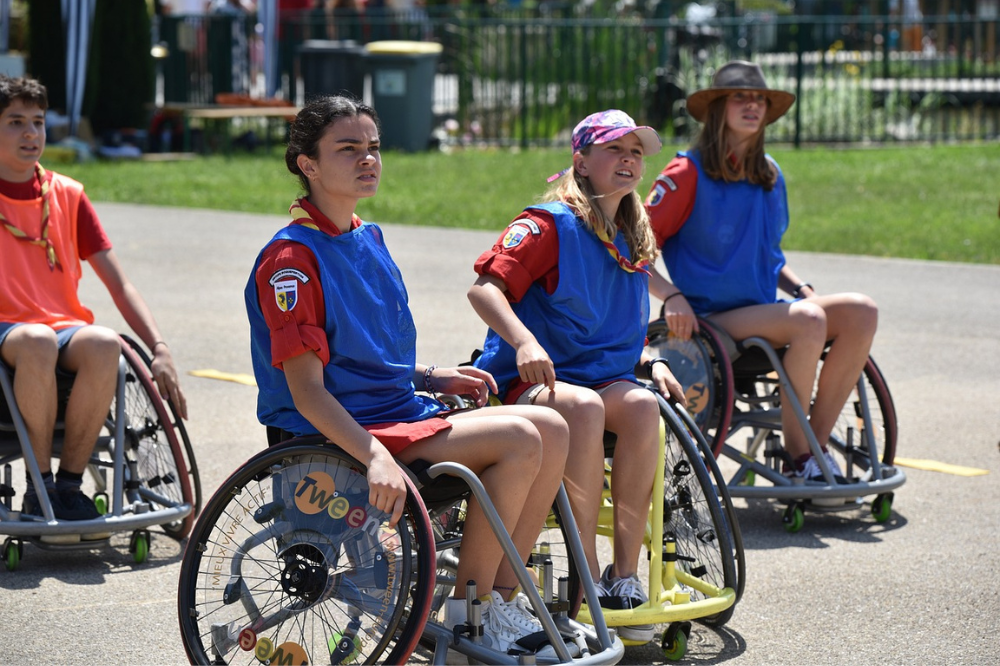
Across Australia’s vast school system, roughly 10% of students aged 5–18 have a disability, and the majority (89%) attend mainstream schools. However, special school enrolments are on the rise as families, with many families preferring an environment specifically tailored to meet their child’s needs.
When choosing these specialist settings for their children, many families also point to the decreased likelihood of bullying and other mistreatment, both from children and staff in mainstream settings, who often do not fully understand or appreciate the unique differences between themselves and these children.
Indeed, factors such as targeted support, a feeling of safety, and adequate resourcing were highlighted frequently in the 7,944 submissions received by the Disability Royal Commission, launched in April 2019 to investigate allegations of violence, neglect, and abuse towards disabled individuals.
Last week, the Commission handed down its final report, containing 222 recommendations on how to improve laws, policies, structures and practices to ensure a more inclusive and just society that supports the independence of people with disability and their right to live free from violence, abuse, neglect and exploitation.
In the deliberations of the Commissioners, a division arose concerning the fate of special schools. The chair and two commissioners held a contrary stance to the remaining commissioners, who advocated for the closure of all special schools.
Matthew Johnson has been working in the special school setting for more than 25 years. As president of the Australian Special Education Principals Association and State President of the NSW Special Education Principals' and Leaders' Association, he has a thorough understanding of what works, and what doesn’t when it comes to educating children with special needs.
Responding to the final report’s recommendation on special schools, Johnson said while advocates for full inclusion frequently employ terms such as ‘segregation’ and ‘institution’ when discussing special schools, these descriptors do not accurately reflect their specialised and educational nature.
“Special schools provide highly specialised learning environments, not segregated or institutionalised settings,” Johnson told The Educator. “Special schools are also subject to scrutiny, external validation and operate under the same policy and compliance frameworks as other schools.”
Johnson pointed out that the right of parents to choose the best education for their children is safeguarded under the Universal Declaration of Human Rights (UDHR) Article 26.
“Notably, other educational institutions such as selective high schools, single-sex schools, private high-fee paying schools, and faith-based schools are not labelled as segregation, despite the element of choice they offer to parents,” he said.
“Similarly, parents select special schools and classes to cater to the specific needs of their children. Denying students with disabilities and their families this choice contradicts the principles of equality.”
Mainstream settings can be impractical for special needs kids
Johnson said special schools offer an individualised and tailored educational experience for students with disabilities, addressing their unique learning requirements, which is often challenging in mainstream schools.
“Highly trained staff in special schools provide effective instruction and support, fostering a safe and inclusive environment, free from the fear of bullying or discrimination,” he said.
“The tailored curricula designed by special schools align with the diverse needs and abilities of their students, facilitating significant progress in academic, social, and life skills.”
Johnson noted that smaller class sizes in special schools allow for personalised attention, enhanced classroom management, and improved learning outcomes for students with disabilities.
“While the aspiration for full inclusion is commendable, it is essential to question the wisdom of reducing specialisation and support for students with disabilities,” he said.
“Placing a child with severe disabilities and complex needs in a regular class of 30 students without adequate support is impractical and unsustainable. To expect a mainstream teacher to meet the needs of all, let alone a student with complex needs, fails to acknowledge the myriad challenges of the modern teacher.”
What does the research say?
Catherine Smith, a Senior Lecturer in Wellbeing Science at the Melbourne Graduate School of Education, says while special schools are often seen to be more cost-effective by consolidating specialist trained teachers in one place, there is evidence the opportunities for academic advancement and opportunity are not adequate.
“Students with disability who go to mainstream schools are more likely to enrol in post-secondary education, to be employed and live independently,” Smith wrote in The Conversation. “According to one research review, students in mainstream schools also tend to have better social skills.”
However, Johnson says existing research on inclusion remains limited and lacks substantial peer-reviewed evidence.
“Advocates of full inclusion acknowledge the challenges faced by mainstream schools, including gatekeeping practices that deter parents and children,” he said.
“This acknowledgment was noted in the Commission Report. Given these challenges, closing special schools and compelling every child into a standardised educational environment seems counterproductive and at worst detrimental.”
Johnson said parents choose special schools “for the exceptional education, care, dedication, and specialisation they provide.”
“Students and families with severe and complex needs deserve the right to a specialised education that is well-funded and valued, rather than the removal of this vital resource to meet ideological goals.”


